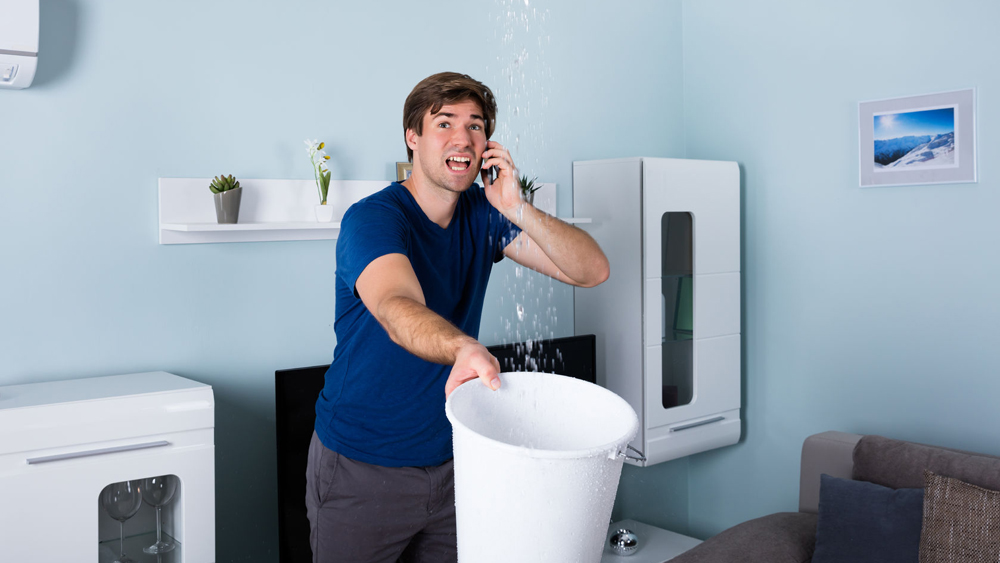The Residential Common Common Factors of Leakage: In-Depth Analysis
The Residential Common Common Factors of Leakage: In-Depth Analysis
Blog Article
Nearly everybody has got his or her own rationale in relation to Most Common Causes of Leaky Pipes.

Leaks not just cause waste of water yet can also create unnecessary damage to your residence as well as advertise unwanted organic development. By understanding and also looking for day-to-day situations that cause leakages, you can shield your home from future leaks and also unnecessary damage.
Immediate temperature level changes.
Severe temperature level changes in our pipes can trigger them to increase and contract suddenly. This expansion as well as contraction might create splits in the pipelines, especially if the temperature level are below freezing. It would certainly be best if you kept an eye on exactly how your plumbing functions. The visibility of the formerly discussed scenarios often indicates a high threat.
Corroded water supply
As time passes by, your plumbing system ages as well as deterioration such as rust may begin eating away the pipes. This may be the cause of discoloration or warping on your pipes. This asks for an examination with your plumber right away. If our plumbing system is old, consider replacing the pipes because they go to a higher danger of corrosion than the newer versions.
Malfunctioning Pipe Joints
Pipe joints can wear away over time, resulting in water leaks. If you have loud pipelines that make ticking or banging noises, specifically when the hot water is transformed on, your pipeline joints are probably under a great deal of stress.
Encroaching roots
A lot of water leakages start outside the house instead than inside it. You may see wet patches or sinkholes in your lawn, and also that could imply that tree origins are getting into water lines creating water to seep out.
Poor Water Connectors
At times, a leak can be triggered by loosened hoses and pipes that provide your devices. In instance of a water connections leakage, you might discover water running straight from the supply line or puddles around your home appliances.
Obstructed Drains
Clogged drains pipes could be frustrating and also inconveniencing, but they can often wind up causing an overflow resulting in rupture pipelines. Maintain removing any materials that may decrease your drains pipes that could block them to prevent such troubles.
All the above are causes of leaks but not all water leaks arise from plumbing leaks; some leakages may come from roofing leakages. All leakages need to be fixed promptly to avoid water damage.
Leakages not just create waste of water but can also cause unnecessary damage to your home as well as promote unwanted organic growth. By comprehending and looking for everyday scenarios that create leakages, you can secure your house from future leaks and unneeded damage. Today, we will look at 6 leakage causes that might be triggering your pipes to trickle.
At times, a leakage can be created by loose pipes and also pipelines that provide your devices. In instance of a water links leakage, you might observe water running straight from the supply line or puddles around your home appliances.
How To Check For Water Leak In Your Home
How To Check for Leaks
The average household's leaks can account for nearly 10,000 gallons of water wasted every year and ten percent of homes have leaks that waste 90 gallons or more per day. Common types of leaks found in the home are worn toilet flappers, dripping faucets, and other leaking valves. These types of leaks are often easy to fix, requiring only a few tools and hardware that can pay for themselves in water savings. Fixing easily corrected household water leaks can save homeowners about 10 percent on their water bills.
To check for leaks in your home, you first need to determine whether you're wasting water and then identify the source of the leak. Here are some tips for finding leaks:
Take a look at your water usage during a colder month, such as January or February. If a family of four exceeds 12,000 gallons per month, there are serious leaks.
Check your water meter before and after a two-hour period when no water is being used. If the meter changes at all, you probably have a leak.
Identify toilet leaks by placing a drop of food coloring in the toilet tank. If any color shows up in the bowl after 10 minutes, you have a leak. (Be sure to flush immediately after the experiment to avoid staining the tank.)
Examine faucet gaskets and pipe fittings for any water on the outside of the pipe to check for surface leaks.
Undetected water leaks can happen without the home or business owner even realizing. If you suspect a water leak, but not able to find the source. It is time to contact a professional water leak detection service, The Leak Doctor.
How To Find a Water Leak In Your Home
https://www.leakdoctor.com/blog/How-To-Check-For-Water-Leak-In-Your-Home_AE197.html

We hope you enjoyed our post about How to Find Water Leaks. Thanks so much for spending some time to browse our article. Sharing is good. Helping others is fun. Thanks a lot for your time. Come back soon.
Trusted for emergency plumbing excellence. Report this page